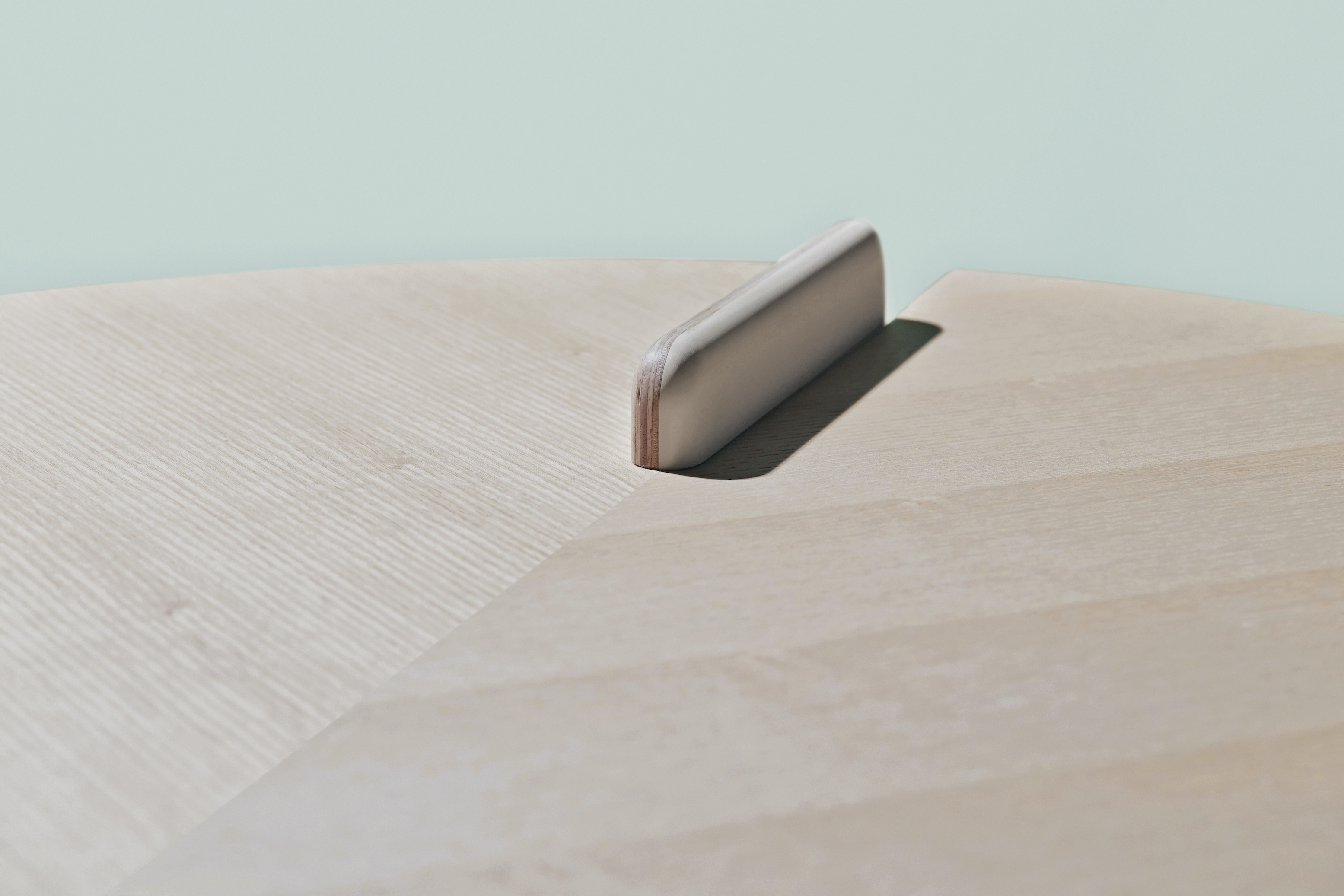
Paper Leaf by Takenouchi Webb
“A thing that intrigued us is how you can shape the edge with a CNC machine,” says Takenouchi. A rounded bullnose edge became a conceptual starting point, and from there the designers developed two tables with ‘natural’ curvature – not quite oval, and not quite circular. “One evening we began experimenting with large sheets of paper. We used my body as a compass to draw the curves,” explains Takenouchi.
Keen to ensure the strength and stability of the tables, Takenouchi Webb paired EDL Compact with plywood – a material that could just as easily be finished with a rounded edge. The result is a pair of dual-sided, slot-together tables, which can be fully dismantled and put to a side of the room when they’re not needed. Ash veneer was applied to the ply side of the table tops in such a way that the wood grains appear like the veins of a leaf.
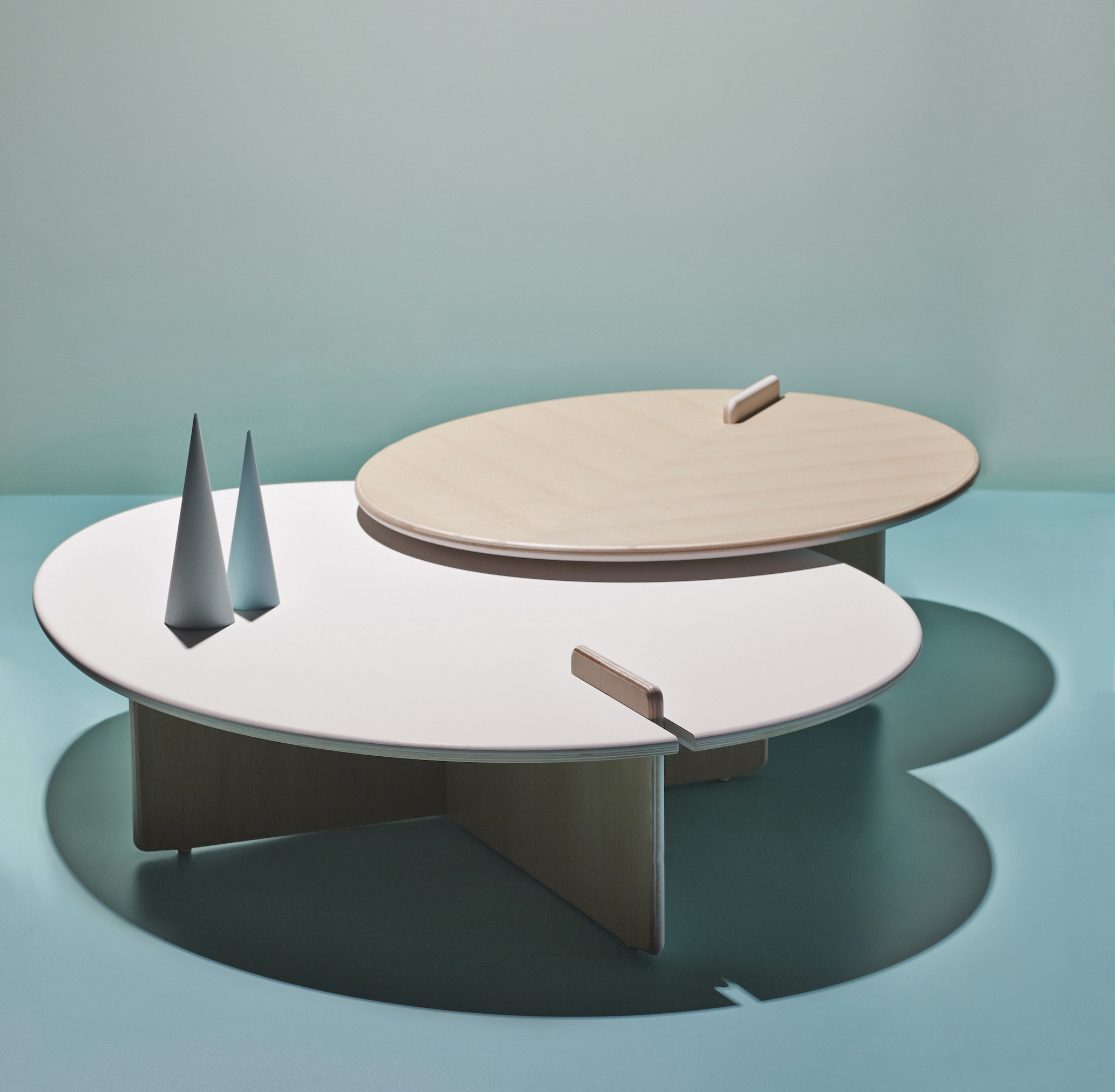
The double-layered surface created the flexibility to alter the look of the tables with ease. And for Webb, the slot-together format takes him back to his own childhood. “Did you ever have those coloured plastic discs that you slotted together to build things?” he asks. “We wanted these tables to have that playful character.”
About Takenouchi Webb
Established in October 2006, Takenouchi Webb is a partnership between British architect Marc Webb and Japanese interior designer Naoko Takenouchi. The studio believes in a holistic approach to design, developing the architecture, interior and furniture for each project. The design approach of Takenouchi Webb is a carefully considered combination of materials, detailing and precision combined with practical problem solving unique to each project.
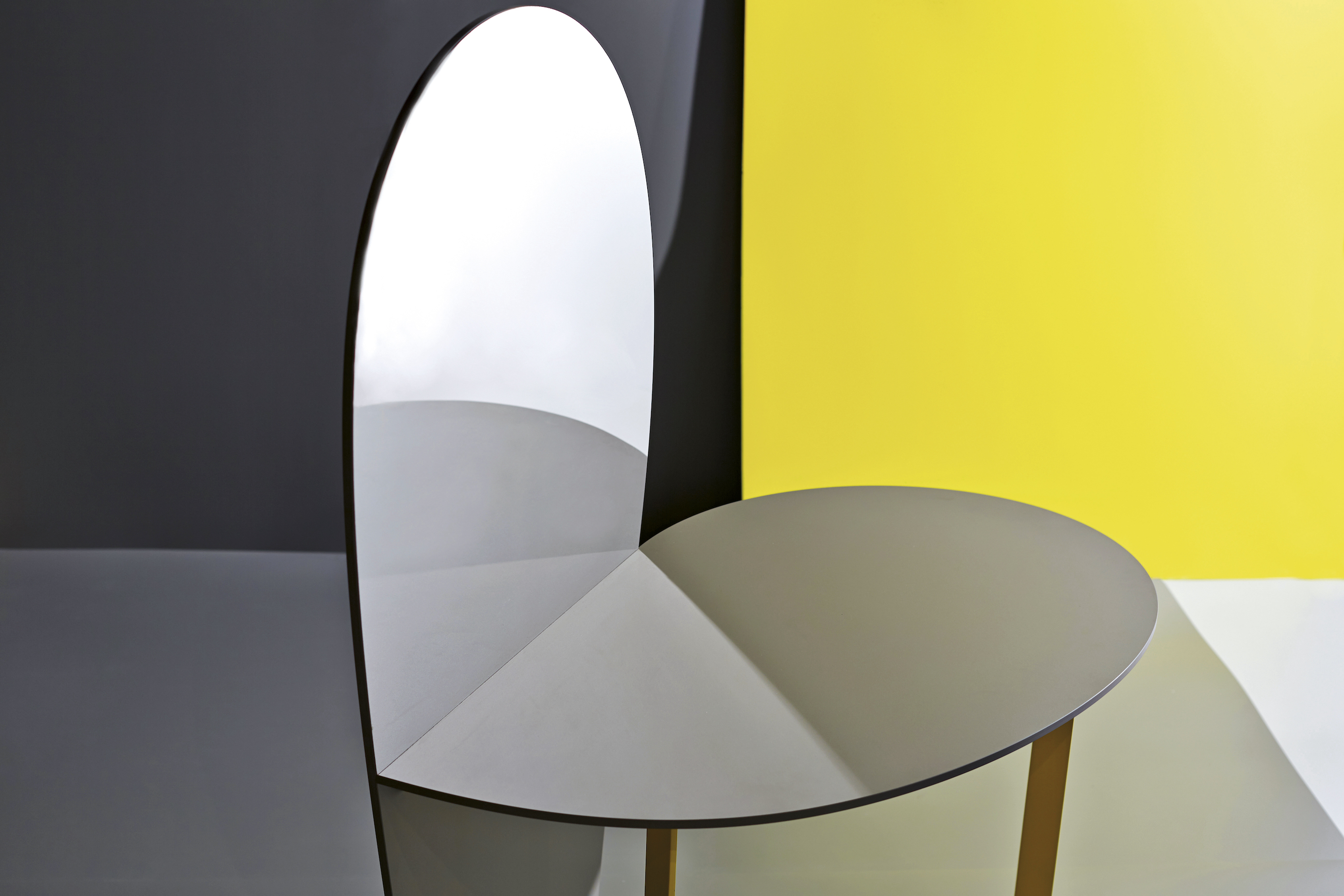
Jetson by Studio Juju
The design of Jetson developed into a confluence of rounded shapes, deviating from the rectilinear and planar formats in which panel materials are often used. “Taking away the straight lines took away the volume and weight,” explains Wong. “It also created a visual lightness. That helps to encourage the experience we wanted.”
The dresser is supported by a framework of curving steel at its base. Explains Lui, “We drew a hyperbolic curve, which brings some tension to the whole form. It gently touches the vertical surface, then it curves away again.” And inherent in the final form is a delightful trick of the eye – the impression that the mirrored vertical surface is actually curved.
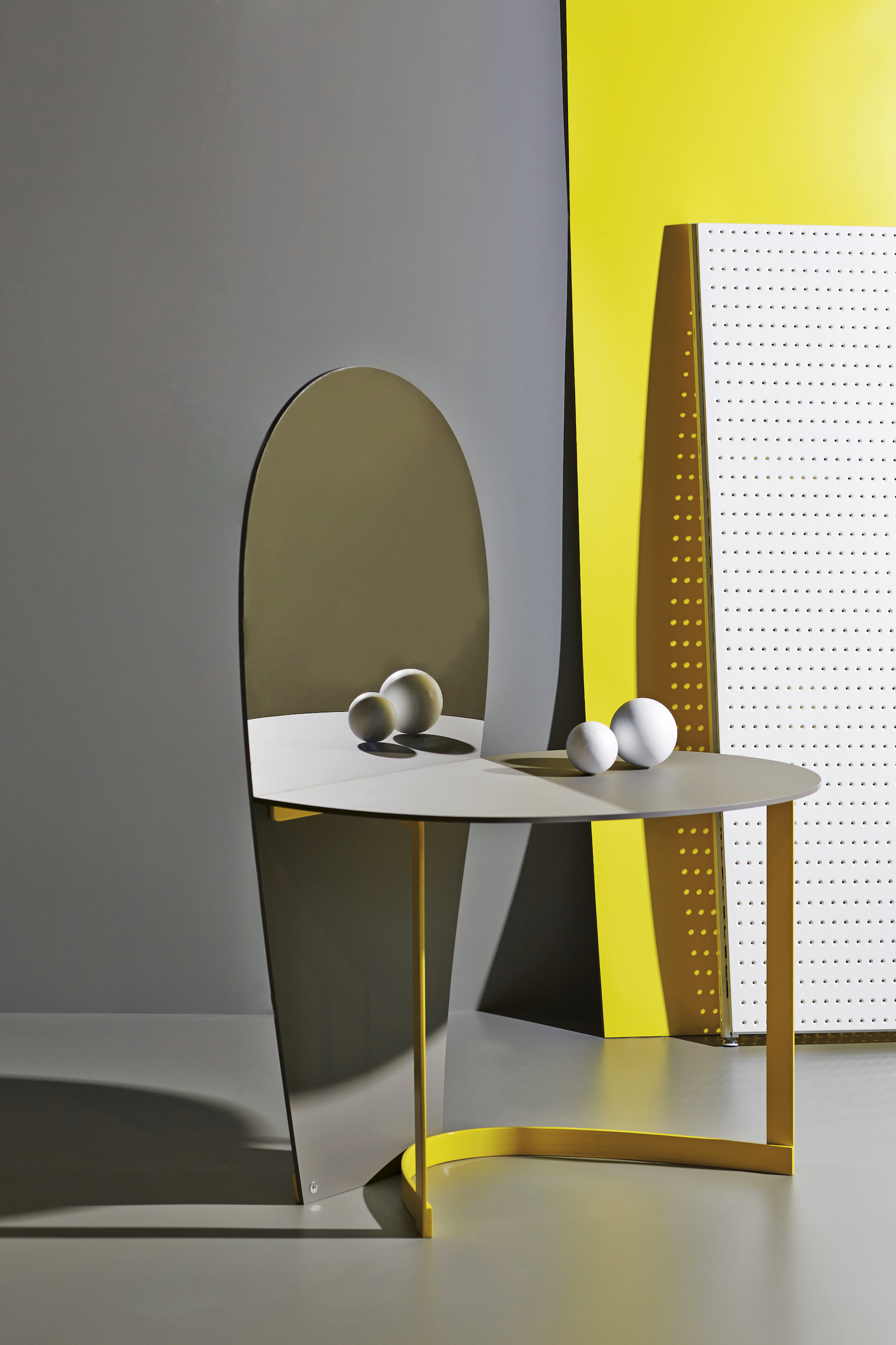
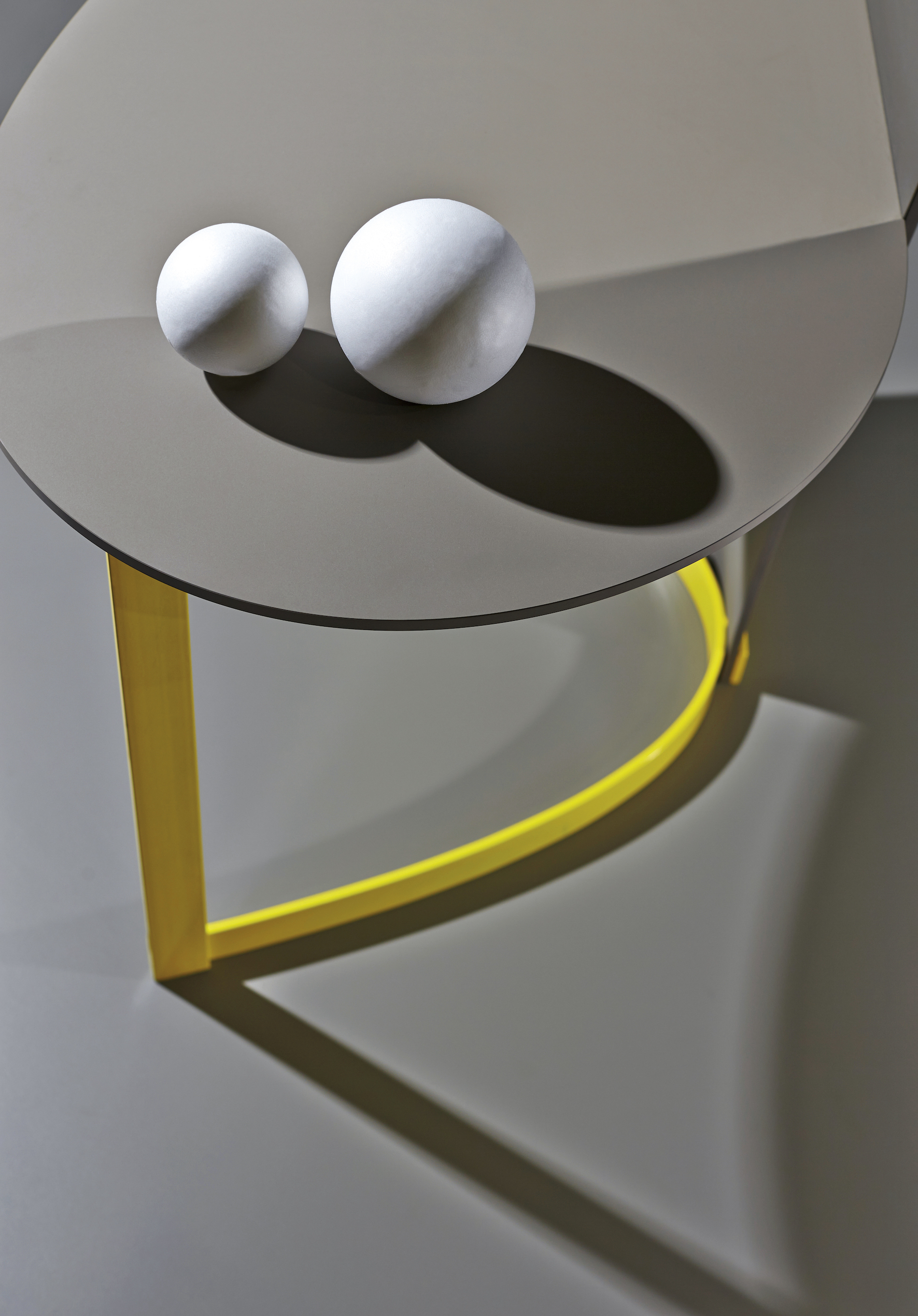
About Studio Juju
Studio Juju is led by Timo Wong and Priscilla Lui to practice design across disciplines in furniture, products and spaces. The studio’s approach is fresh and optimistic and each project is a union of simplicity and warmth, functionalism and whimsy, refinement and relevance. Timo and Priscilla consider their design practice as a freedom to exploration, and as a medium for collaboration.
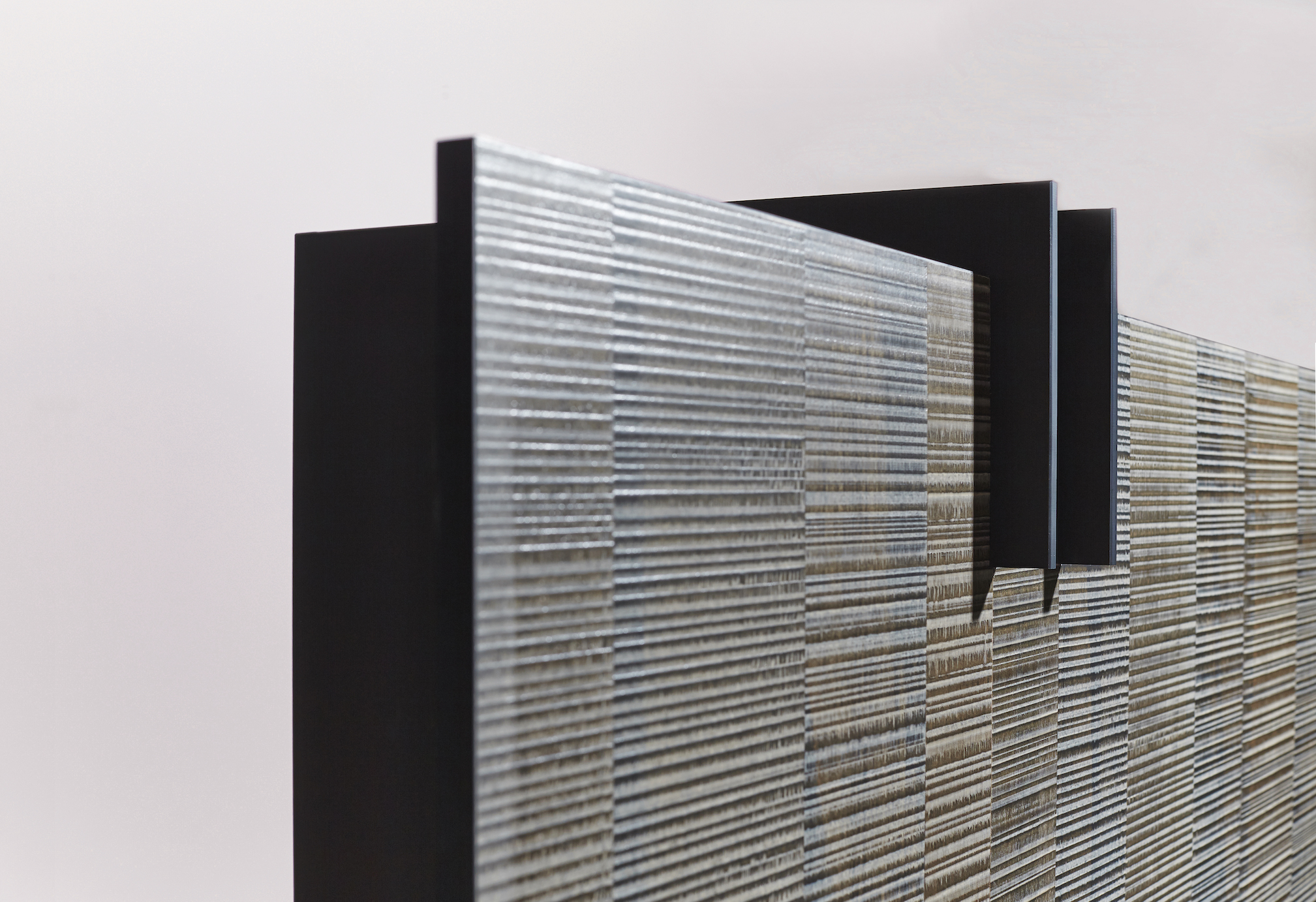
Niminy-piminy by K2LD Architects
Furniture or sculpture? The objects – titled Niminy-piminy – created by Ko Shiou Hee, Managing Director of K2LD Architects, are both. The genesis of the concept came about some 25 years ago, when Ko took an independent study class in sculpture, and designed a table with interlocking panels of MDF. The structure was such that it could be flipped on its side and take on the character of a sculpture.
He began pairing EDL Compact with other materials to test asymmetrical configurations for interlocking, freestanding forms. “I didn’t want to use the material just as a surface,” says Ko. “I wanted to prove a point – that you can support anything with a minimum of three legs.”
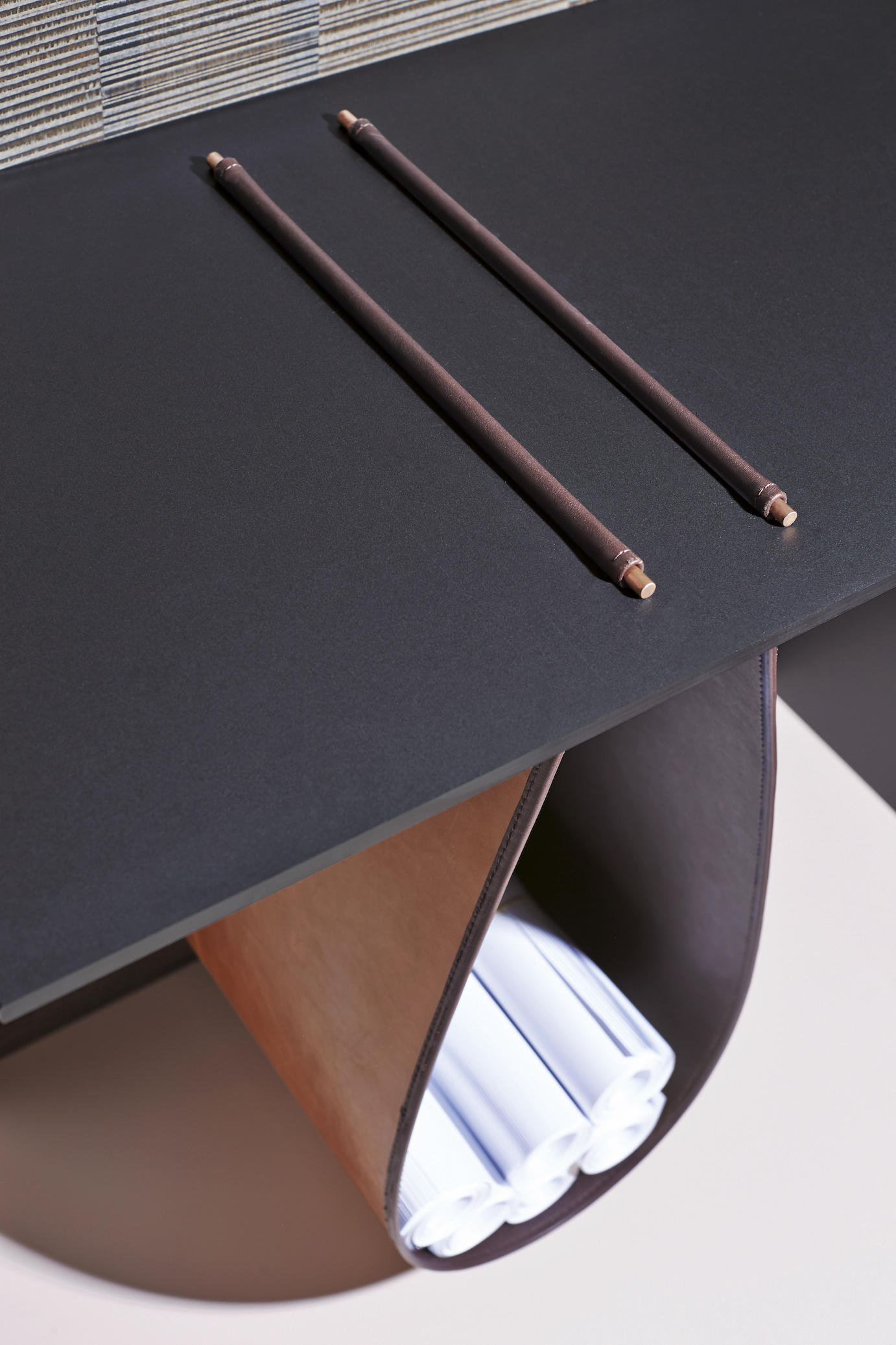
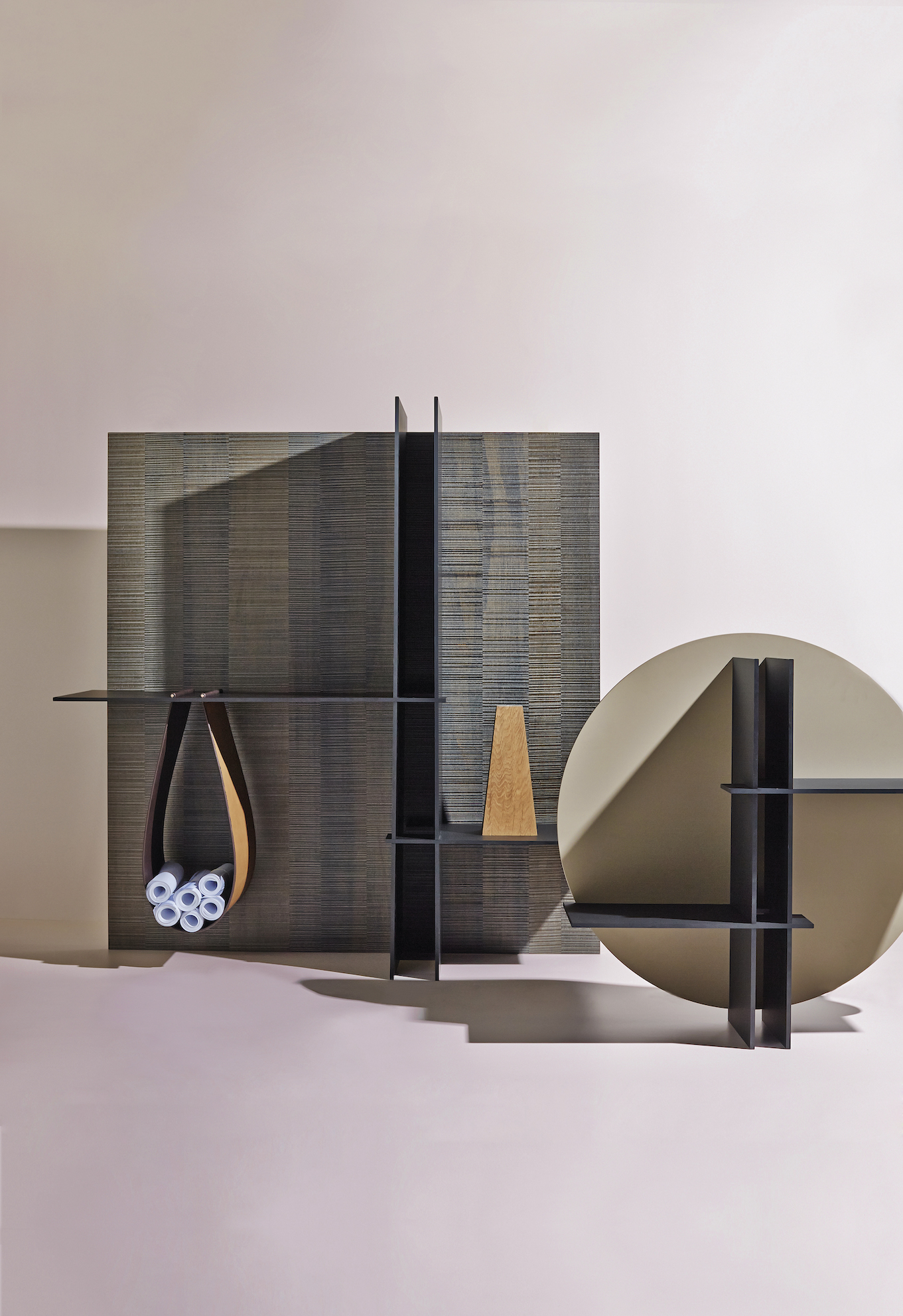
About K2LD Architects
K2LD is a boutique architectural firm committed to delivering bespoke design solutions for every project. The firms ideas are rooted in the “sense & sensibility” of architecture. Elements of space, light and materials are crafted to create an architectural experience that delights the senses, and the continual refinement of human aspiration, technology and environment are key sensibilities towards the emergence of beauty and excellence in design.